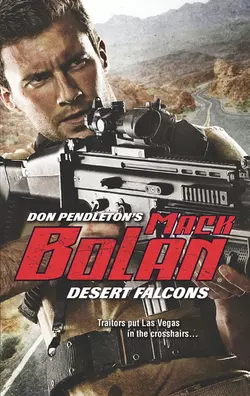Desert Falcons

Don Pendleton
Тип: электронная книга
Жанр: Книги о приключениях
Язык: на английском языке
Стоимость: 458.46 ₽
Статус: В продаже
Издательство: HarperCollins
Дата публикации: 16.04.2024
Отзывы: Пока нет Добавить отзыв
О книге: ROYAL CONSPIRACYIn the Kingdom of Saudi Arabia, a secret group within the military is plotting to oust the Royal Family. Their next move: kidnapping the playboy prince from a desert warfare training session outside Las Vegas. But Sin City already has its share of trouble, with authorities investigating the disappearance of two park rangers and coping with threats made by an anti-Muslim rancher who has a highly efficient militia of his own.It falls to Mack Bolan to keep the prince safe at all costs. But someone in the heir′s inner circle is a traitor, and the agents working the park ranger case are bound by official procedure. When it comes to stopping the fall of a kingdom and preventing a bloodbath on US soil, the Executioner makes his own rules.